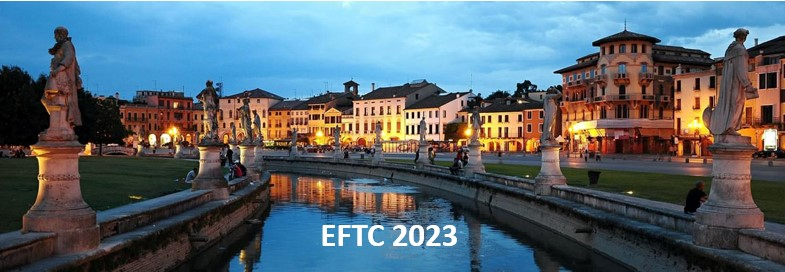Speaker
Description
In the last experimental campaign of Wendelstein 7-X (W7-X) the new ICRH antenna [1] was brought into operation. With only one of the two antenna straps being operable in the last campaign, the available phasing options as well as the amount of power that could be coupled into the core plasma were limited. Nevertheless, the antenna is expected to be fully functional for the next operational campaign. Hence, investigations have been started to evaluate how to best utilize all the heating systems of W7-X for the purpose of fast-ion generation.
Note that generating deeply trapped collisionless fast ions is an important prerequisite for proving that the confinement of fast ions improves in W7-X with increasing plasma beta [2]. So far, no heating scheme was able to generate such particles on its own in W7-X.
In this contribution we show novel simulation results, obtained with the SCENIC code package [3], regarding the possibility of generating fast particles in Wendelstein 7-X (W7-X) through combined radio-frequency (RF) heating and neutral beam injection (NBI) schemes. In contrast to previous work [4], the focus is on pure Hydrogen plasmas as well as Helium plasmas, respectively, as those will be the foreseen target plasmas for the next operation phase. All simulations are carried out with realistic W7-X profiles.
For both target plasmas, Hydrogen or Helium, various operating parameters are varied in order to find settings that maximise the generation of energetic particles and to guide the experimental planning in this way. Apart from changing the bulk-plasma composition itself, further actuators tried in this work include changing the antenna frequency, which affects the resonance with the Doppler-shifted NBI-ions, as well as varying the Hydrogen content (coming from NBI) in the plasma by changing the NBI heating power.
References:
[1] J. Ongena, et al., Physics of Plasmas 21, 061514 (2014)
[2] M. Drevlak, et al., Nuclear Fusion 54, 073002 (2014)
[3] M. Jucker, et al., Computer Physics Communications 182, 912-925 (2011)
[4] M. Machielsen et al., Journal of Plasma Physics 89, 955890202 (2023)
